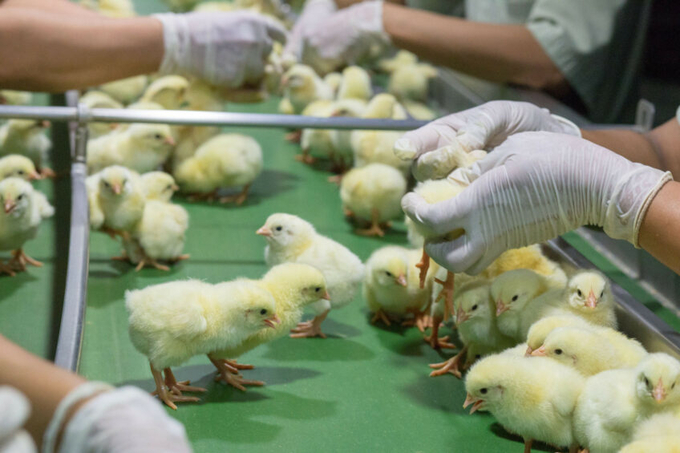May 24, 2025 | 16:26 GMT +7
May 24, 2025 | 16:26 GMT +7
Hotline: 0913.378.918
May 24, 2025 | 16:26 GMT +7
Hotline: 0913.378.918

There are reportedly very few employees who have gone to Russia to work in the agricultural sector. Photo: Canva
Workforce deficit has become the key challenge for the Russian economy in the past 2 years, opinion polls repeatedly indicate. A study by the Russian Central Bank in April 2024 showed that 70% of Russian firms suffered from a labour shortage.
According to a report from the Institute of Economics of the Russian Academy of Sciences, the country currently faces a labour shortage of 4.8 million, a situation that rapidly worsened in 2022 and 2023, impeding economic growth.
The poultry industry, where labour issues were evident before 2022, has been hit hard by the problem owing to a shrinking population in rural areas.
The labour market is tough, as the latest research by the country’s leading job platforms suggests that there are no regions in Russia with excess labour resources, a spokesperson for Cherkizovo, Russia’s largest broiler meat manufacturer, told local publication Agroinvestor.
“We, like the vast majority of Russian employers, are actively broadening our sources of recruiting personnel, including engaging with labour migrants,” the spokesperson said.
Cherkizovo tries to pull workers from traditional Russian workforce donors, such as Uzbekistan, Tajikistan, Kyrgyzstan, Kazakhstan, and Belarus, but also makes efforts to hire workers in India and Sri Lanka.
Fewer employees entering Russia
This year, there are very few employees who have come to Russia to work in the agricultural sector, Agroinvestor reported, citing local sources.
This is primarily associated with the Russian ruble’s depreciation, meaning that foreign workers start earning less. For instance, Irina Koziy, CEO of the Berry Union, also warned that several factors discourage workers from seeking job opportunities in Russia.
“Entry into Russia has become very complicated. There are cases when potential labour migrants are kept at the border for 12 hours and then sent back. After this, foreign citizens prefer to work in other countries. Workers from Central Asian countries who traditionally come to Russia increasingly choose to work in Turkey, Europe or China,” she admitted.
Increasing wages in an effort to fill gaps
This is not the first time workforce shortage in the Russian poultry industry have come to a fore. In September 2023, Russian newspaper Kommersant, citing several poultry farms, reported that several companies struggle to fill between 25% and 30% vacancies.
To address the labour shortage, Russian firms have nearly doubled monthly wages during the last year, but the problem persists, Agroinvestor reported.
(PW)

(VAN) Alt Carbon has raised $12 million in a seed round as it plans to scale its carbon dioxide removal work in the South Asian nation.

(VAN) Attempts to bring down the price of the Japanese staple have had little effect amid a cost-of-living crisis.

(VAN) Fourth most important food crop in peril as Latin America and Caribbean suffer from slow-onset climate disaster.

(VAN) Shifting market dynamics and the noise around new legislation has propelled Trouw Nutrition’s research around early life nutrition in poultry. Today, it continues to be a key area of research.

(VAN) India is concerned about its food security and the livelihoods of its farmers if more US food imports are allowed.

(VAN) FAO's Director-General emphasises the need to work together to transform agrifood systems.

(VAN) Europe is facing its worst outbreak of foot-and-mouth since the start of the century.